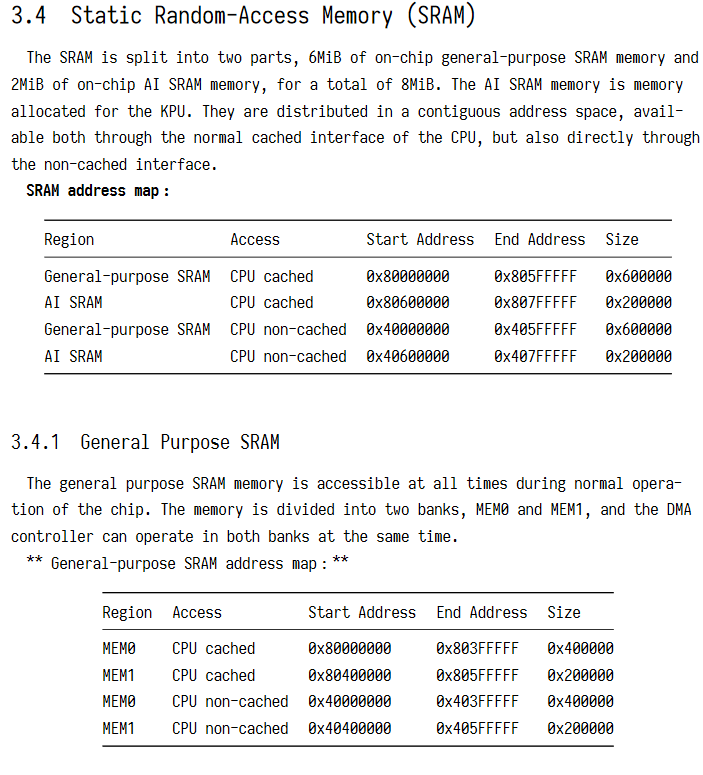I’m working on a Kendryte K210 board (env:sipeed-maix-bit-mic).
I’m trying to put variables at a fixed address in the general-purpose SRAM and tried using a linker script to achieve this. But even if I put the full Path to my linker file in the board.json i get
the following error:
riscv64-unknown-elf-objcopy: error: the input file ‘.pio\build\sipeed-maix-bit-mic\firmware.elf’ has no sections
current linker script:
MEMORY
{
nonCachedGPSRAM (wa!rx) : ORIGIN = 0x40000000, LENGTH = 0x600000
}
my borad.json:
{
"build": {
"extra_flags": "",
"f_cpu": "400000000L",
"ldscript": "C:/Users/ErikS/Documents/PlatformIO/Projects/Minibot_SD-card/src/LScript.ld",
"mcu": "K210",
"hwids": [
"0x0403",
"0x6010"
],
"variant": "sipeed_maix_bit",
"board_def": "BOARD_SIPEED_MAIX_BIT"
},
"frameworks": [
"kendryte-standalone-sdk",
"kendryte-freertos-sdk",
"arduino"
],
"name": "Sipeed MAIX BiT with Mic",
"upload": {
"maximum_ram_size": 6291456,
"maximum_size": 16777216,
"burn_tool": "bit_mic",
"require_upload_port": true,
"speed": 1500000
},
"url": "https://www.sipeed.com/",
"vendor": "Sipeed"
}
my platform.ini
[env]
[env:sipeed-maix-bit-mic]
platform = kendryte210
board = sipeed-maix-bit-mic
framework = kendryte-standalone-sdk
upload_port = COM1
monitor_port = COM1
monitor_speed = 115200
If anybody has a smarter solution to put variables at a fixed address, with for example “#pragma”, i would be happy to use it instead of linker scripts.
